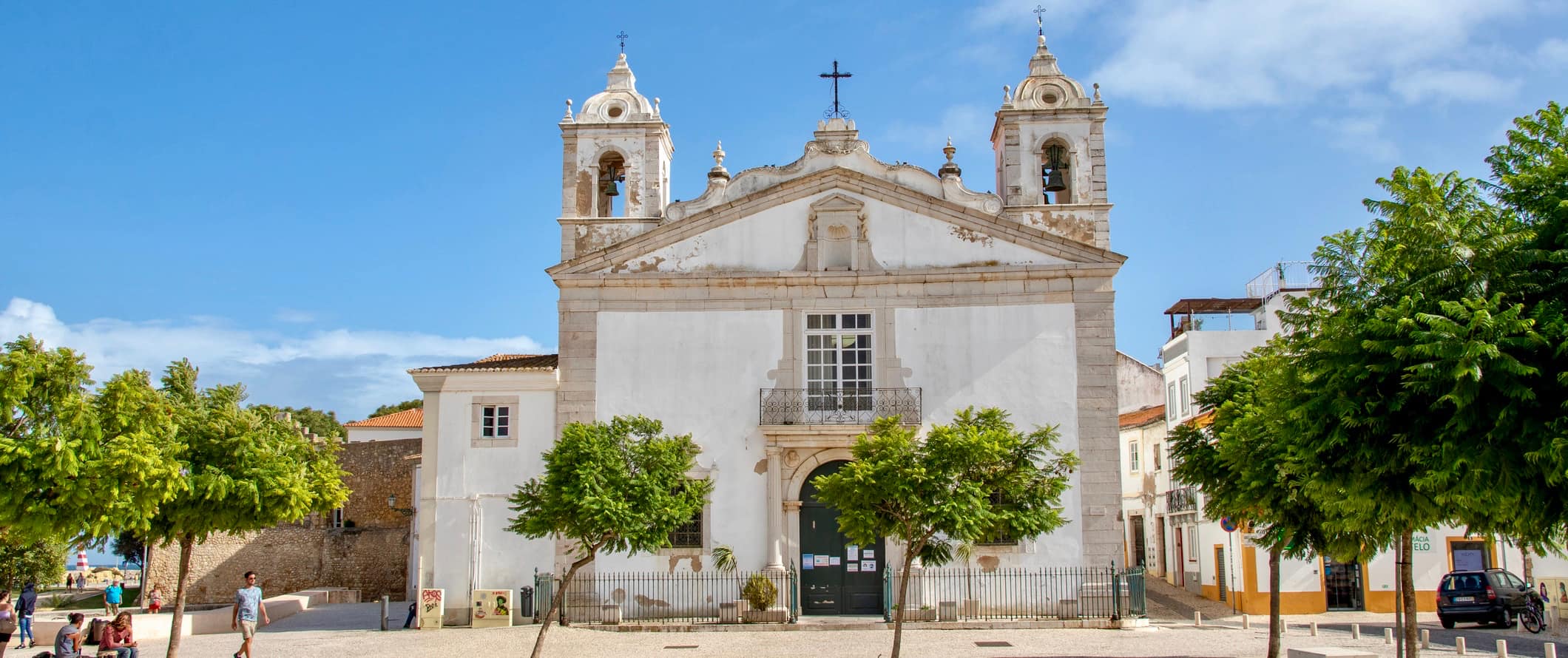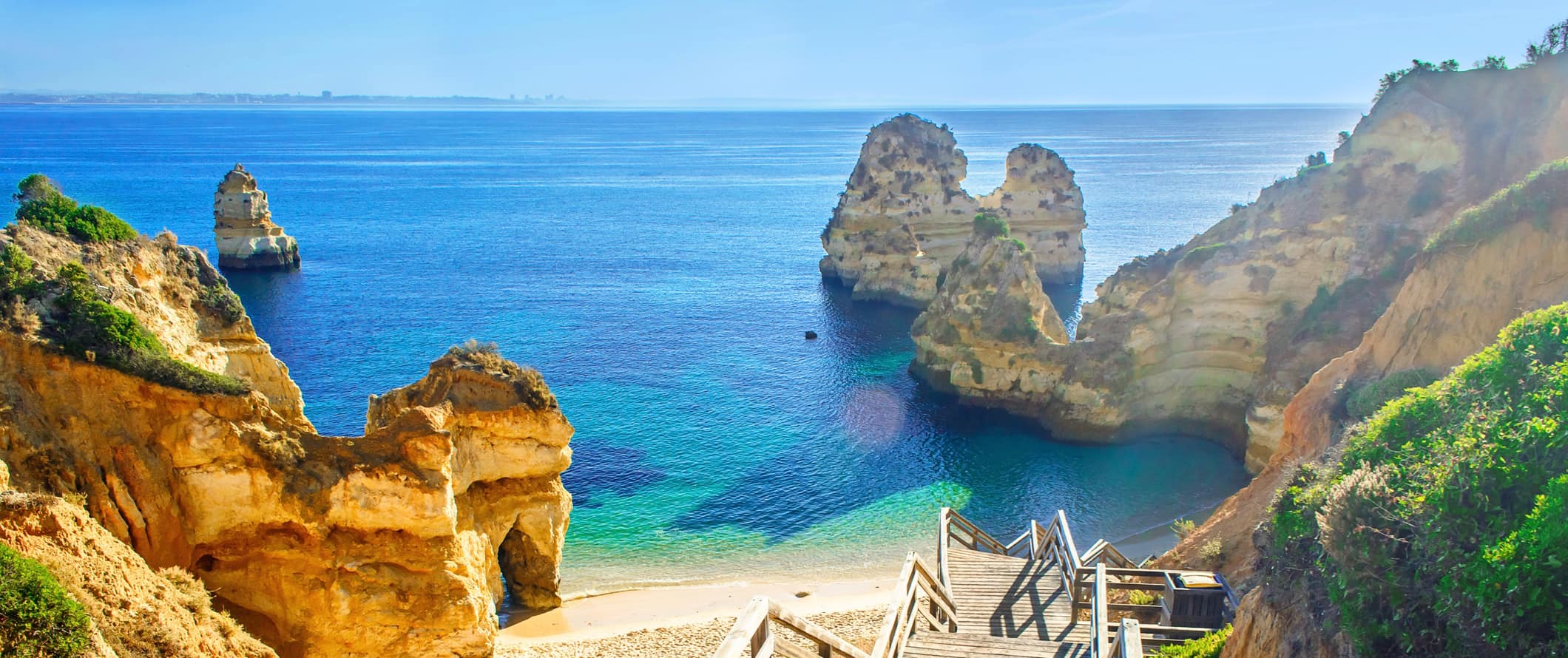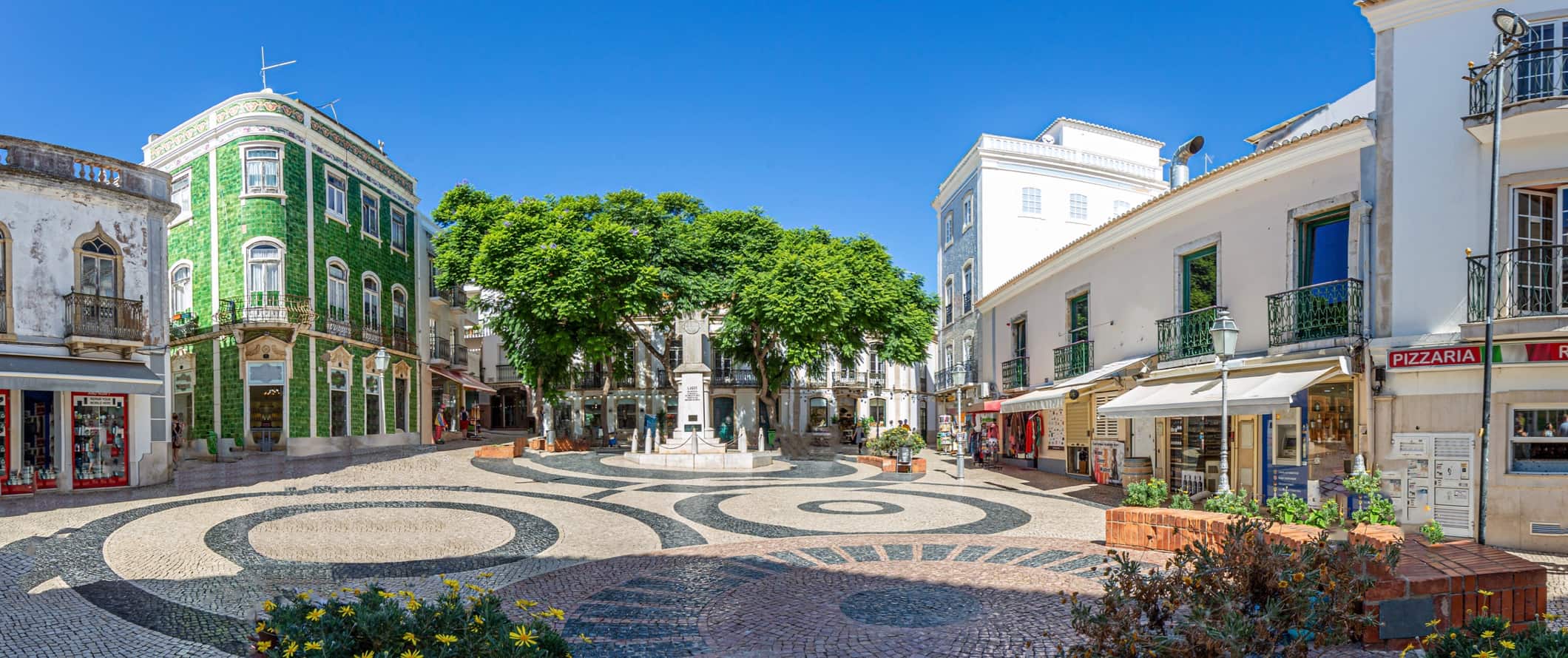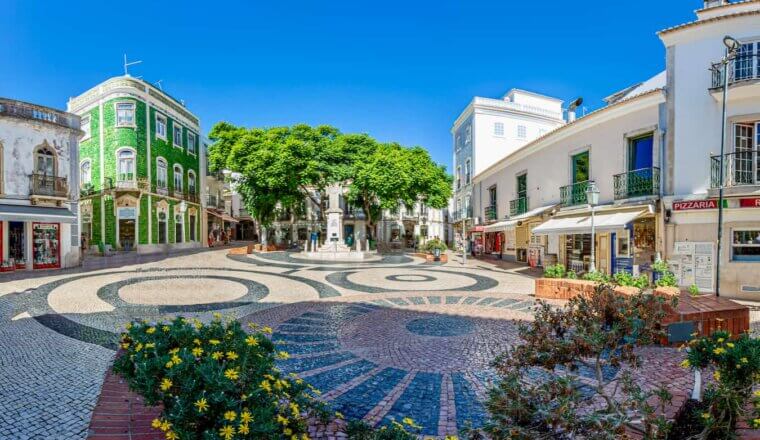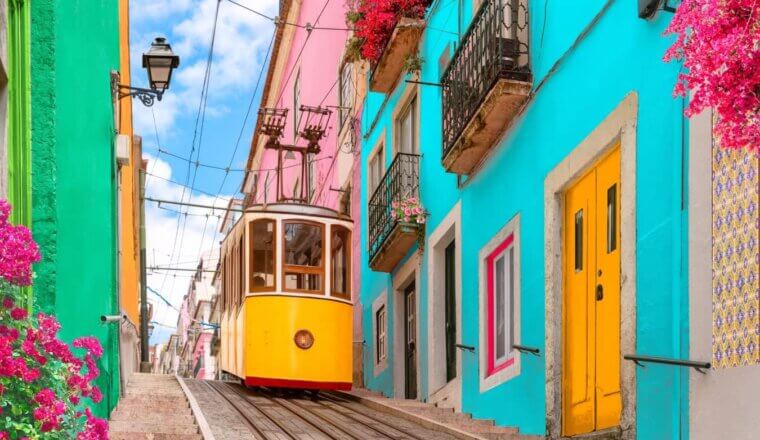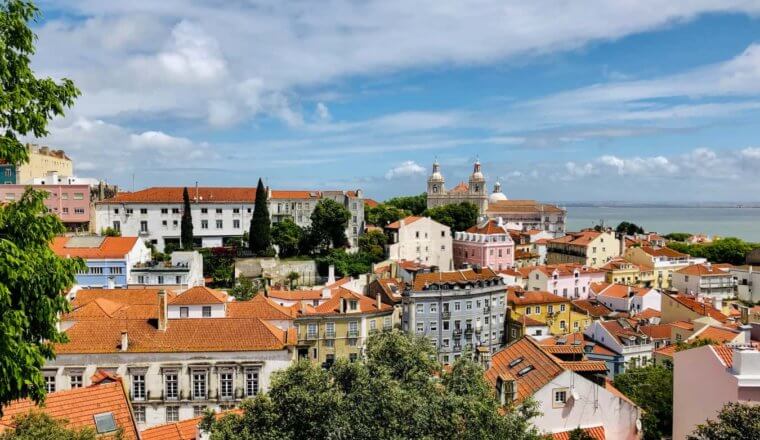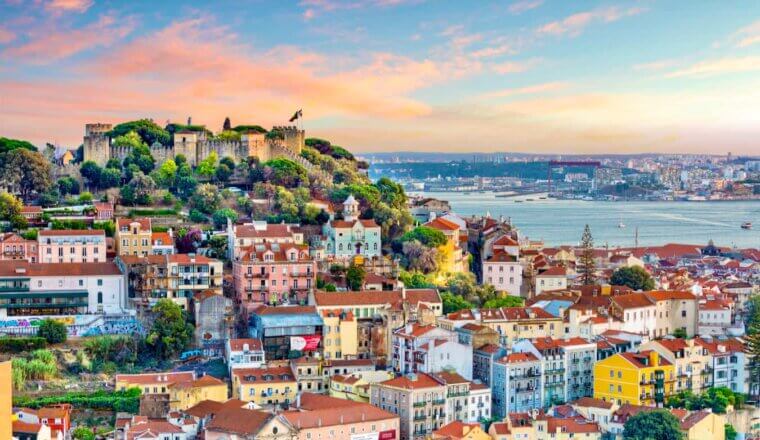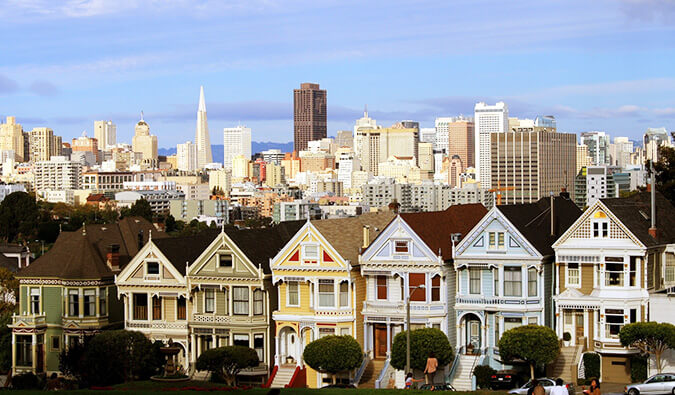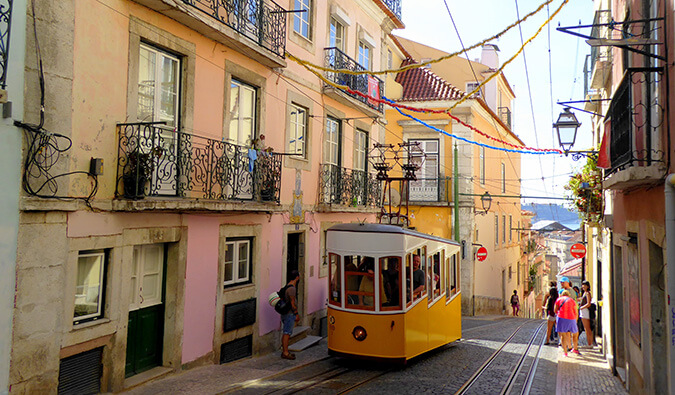Lagos Travel Guide
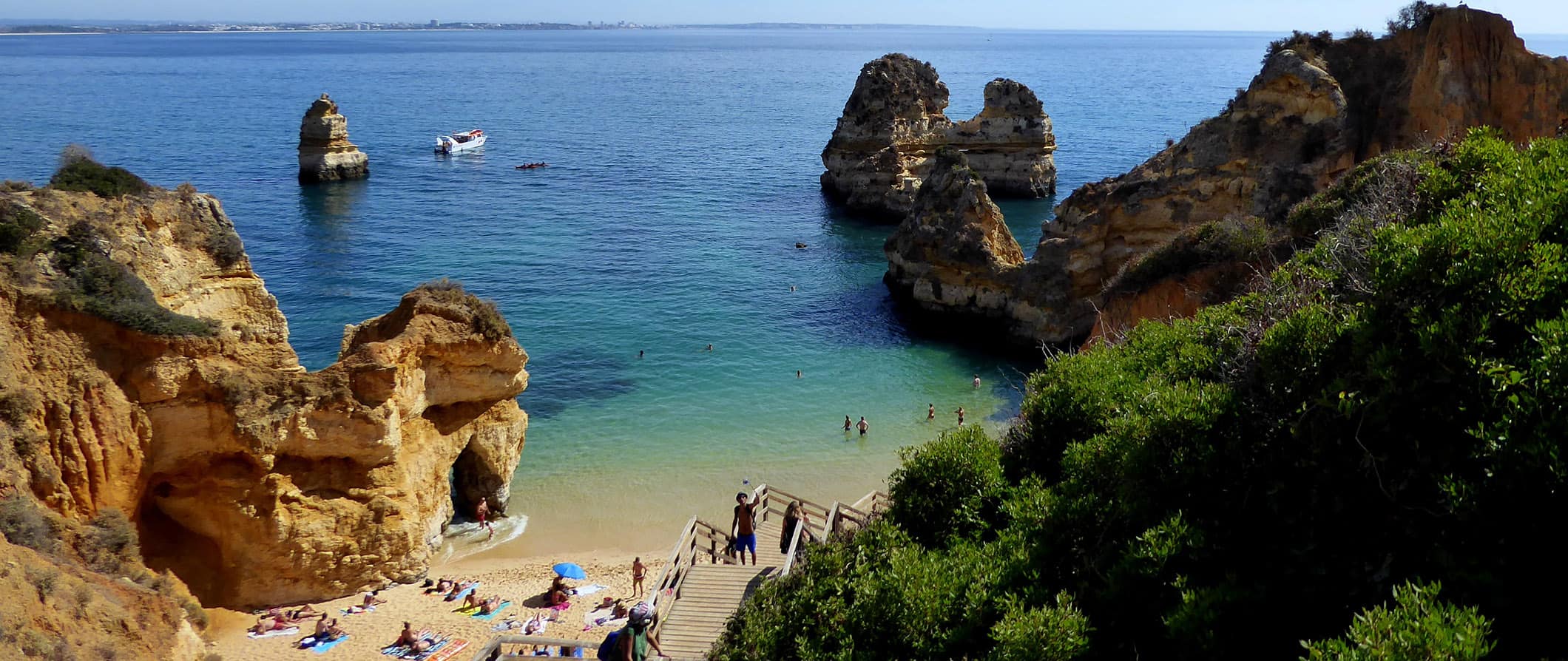
The historic town of Lagos lies in the Algarve, Portugal’s southernmost region. Once a famous seaport (this area is where many of Portugal’s 15th-century expeditions departed from), nowadays visitors come to indulge in its fantastic range of restaurants, beautiful beaches, and wild nightlife.
Home to just over 30,000 people, during the summer Lagos becomes the center of partying for backpackers in Portugal, boasting endless bar crawls, booze cruises, and fun in the sun. It’s not only one of the most visited cities in the region — it’s one of the most visited in the country.
Even if partying isn’t your thing, there’s plenty to do here. The city makes a great base of operations to explore neighboring towns, coves, and beaches. There is also a ton of history to explore here as well. Europe’s first slave market was built here and the Portuguese explorer Henry the Navigator lived much of his life in Lagos (Henry launched the Age of Discovery with the development of his lighter caravel ships and his explorations in West Africa).
In short, Lagos has something for everyone no matter their interest or budget.
This travel guide to Lagos will help you plan your trip, save money, and make the most of your time in this laid-back coastal paradise!
Table of Contents
Top 5 Things to See and Do in Lagos
1. See the city castle
Built by the Moors (Muslims from North Africa that invaded Europe and conquered parts of Spain and Portugal) in the 10th century, this small castle has been restored and turned into a museum. Known as Castelo dos Governadores, the castle and walls were extended and improved over the centuries, with the walls eventually expanding around the entire town. Don’t forget your camera because once you’re at the top there are breathtaking views of the sea.
2. Explore the historic churches
Originally built in 1498, the Church of Santa Maria became the parish church of Lagos after the 1755 earthquake (one of the biggest earthquakes to ever hit Europe, killing upwards of 50,000 people). The interior isn’t particularly ornate, but the historic building is worth seeing up close. Another church worth visiting is the 18th-century Church of Santo António just off the waterfront. Like most buildings in Lagos, it was destroyed in the 1755 earthquake and rebuilt in 1769. Its altar is decorated with some of Portugal’s most iconic Baroque gilt carvings and the gilded woodwork is extremely detailed and ornate. There are lots of 18th-century azulejo tiles here as well. Just remember to dress respectfully when visiting as these are religious places of worship.
3. Check out the grottos
Just a few miles from Lagos is the famous Ponte de Piedade, where you’ll find some cool coastal rock formations. This secluded area makes for a wonderful day trip, during which you can relax in the sun and swim in the clear water. It’s just 2.8 kilometers (1.7 miles) from the city center. Boat tours from Get Your Guide that explore the caves along the coast last just over an hour and cost 23 EUR.
4. Lounge at the beach
One of the main reasons to visit Lagos is to laze at one of its many picturesque beaches. The beaches range from the long, broad Meia Praia on the eastern edge of town (it’s usually crowded in summer with volleyball and beach bars) to the secluded coves beneath the towering cliffs of the Ponta da Piedade. Other beaches worth visiting are Praia do Camilo, Praia do Pinhão, and Praia da Dona Ana.
5. Hit the waves
The Algarve is a popular spot for watersports, especially surfing, kayaking, and kitesurfing. It’s easy to rent equipment (there are a ton of shops) and if you’re a newbie, you can take lessons. Surf lessons cost 55 EUR while renting a board is just 25 EUR. Kite surfing lessons cost 155 EUR while rentals (including a wetsuit) are 80 EUR.
Other Things to See and Do in Lagos
1. Go scuba diving
Boasting some 850 kilometers (528 miles) of coastline, this region of Portugal is home to numerous underwater caves and shipwrecks. It’s one of the best diving spots in Europe. Pedra de Ancora is home to a fabulous reef filled with lobsters and drum fish while swarms of fish can be found in Porto de Mos. Arriefes and The Cave are perfect dive spots for beginners. A single-tank dive starts at 45 EUR per person while two-tank dives cost around 75 EUR.
2. Visit the fish market
Mercado Municipal is a three-story market known for its freshly caught fish. Get here early (6am-7am is best) to see fishermen unload their catch and locals vie for the freshest fish. While the fish vendors can be found on the ground floor, you’ll also find local produce, cheese, butcher shops, herbs, nuts, and oils spread throughout the market’s three floors. This is a cool place to spend a morning taking in the local pace of life.
3. See the Old Slave Market (Mercado de Escravos)
In one corner of the Praca da Republica, under the arches of the old customs house is the original home of Europe’s first slave market. The market opened in 1444 and it is said that within a century up to 10,000 slaves were being shipped annually from Africa. Today, this area is a museum. Exhibits include displays that detail the lives of slaves, as well as artifacts like manacles, weapons, maps, and the complete history of the port and slave market in Lagos. It’s a sobering but important visit. Admission is 4 EUR.
4. Walk along the town walls
The town ramparts and fortification walls originally date as far back as the Roman era. They were expanded to accommodate the town’s growth during the period of Arab rule and then again during the Christian annexation a couple of centuries later. The walls as seen today date to the 16th-century when Barbary pirate raids were common and Spain was threatening invasion. The walls still circle the entire city so walking them in their entirety may be more exercise than you want but you can easily check out sections of it. Don’t miss the Porta de São Gonçalo, which is flanked by Albarran towers, and the fort of Ponte de Banderia. These are the most well-preserved sections of the wall.
5. Tour the Municipal Museum
Located in a Baroque church annex, the Municipal Museum is next to St. Anthony’s church and houses a collection of archaeological artifacts and religious art. The museum was founded by Dr. José dos Santos Pimenta Formosinho in 1932. Here you can learn about the history of Lagos and the surrounding region. It’s a good way to spend a couple of hours when you tire of the beach. Admission is 3 EUR.
6. Visit the Science Center
If you need a break from the sun, the Ciencia Viva Science Center is a neat place to spend a couple hours. It offers hands-on interactive exhibits focusing on ancient Portuguese seafarers. There are three themed areas: orientation and navigation, life on board the ship, and distance communication. Learn about the sea route to India, old-world navigation techniques, Morse code, and more. It’s super fascinating! Admission is 5 EUR.
7. Take a food tour
One of the best ways to get to know a new culture is by its food. Food Tours Algarve offers a food and wine tour that visits restaurants in Lagos and includes around a handful of tasty traditional dishes. The tour is 3.5 hours and guides you through local neighborhoods, offering interesting history, architecture, and cultural insights. If you’re a foodie like me, this is a must! Tickets are 75 EUR. You can also take just a wine tour around Algarve. Tours from South Explorers last 4 hours and cost 55 EUR.
For more information on other cities in the Portugal, check out these guides:
Lagos Travel Costs
Hostel prices – For a bed in a dorm with 4-8 beds, prices start around 15-25 EUR per night (most hostel dorms have 8 beds or less). Private rooms in hostels start around 50-85 EUR per night. Hostels offer free Wi-Fi and many also include breakfast. Most hostels also have self-catering facilities as well.
Camping is available outside the city for those who have a tent (and a vehicle). Prices start around 22 EUR for a basic plot without electricity for two people.
Budget hotel prices – There aren’t many budget two-star hotels in Lagos, but the ones you can find cost between 50-80 EUR per night. For a three-star hotel, expect to pay around 90-115 EUR per night. Free Wi-Fi, TV, and AC are standard while some also include free breakfast.
On Airbnb, private rooms start around 40 EUR but average closer to double that if you don’t book early. Entire homes/apartments start around 75 EUR per night, though they average around 140 EUR. Book early for the best deals.
Average cost of food – Fish and seafood form the backbone of Portuguese cuisine (Portugal eats the most seafood per capita in Europe). Cod, sardinhas assadas (grilled sardines), sea bass, and shellfish are some of the most common staples. Other popular dishes include cozido à portuguesa (boiled stew), peixinhos da horta (breaded and fried vegetables), and cured ham. Be sure to also try the prego (beef sandwich) or the bifana (pork sandwich). You can find them at local cafes for just 5 EUR.
You can find snacks in bakeries for under 5 EUR while light meals and sandwiches cost 7-10 EUR. Try a bifana, sautéed pork seasoned with garlic, spices, and white wine, served on a roll. Dried octopus (polvo seco) is good, and bolas de Berlim (doughnuts filled with doce de ovos) is another tasty choice as well.
If you want a nice three-course meal with table service and drinks, you’re looking at spending closer to 20 EUR. For a more casual dining experience, expect to pay closer to 10-15 EUR.
Fast food (think McDonald’s) is around 7 EUR for a combo meal. A large pizza costs 12-15 EUR while Chinese food is 8-11 EUR for a main dish.
Beer costs around 2 EUR while a latte/cappuccino is just under 2 EUR. Bottled water is less than 1 EUR.
For a week’s worth of groceries, expect to pay between 35-40 EUR. This gets you basic staples like pasta, vegetables, and some meat or seafood.
Backpacking Lagos Suggested Budgets
On a backpacker budget of 40 EUR per day, you can stay in a hostel dorm, cook all your meals, limit your drinking, use public transportation to get around, and stick to mostly free activities like swimming and enjoying the beach. If you plan on drinking and partying, add 5-15 EUR per day to your budget.
On a mid-range budget of 115 EUR per day, you can stay in a private Airbnb or private hostel room, eat out for a few meals and cook the rest, enjoy a few drinks, take the occasional taxi to get around, and do more paid activities like visiting some museums and going scuba diving.
On a “luxury” budget of 215 EUR or more per day, you can stay in a hotel, eat out for all your meals, drink more, rent a car to get around, and do whatever tours and activities you want. This is just the ground floor for luxury though. The sky is the limit!
Lagos Travel Guide: Money-Saving Tips
If you find cheap accommodation, cook your meals, and stick to mostly free activities, you’re going to easily be able to keep your budget intact here. Just be aware that prices increase during the summer and that excessive partying can break the bank faster than you think. With that in mind, here are some tips to help you save money in Lagos:
- Use Airbnb – Because this is such a popular tourist destination, many hotels raise prices substantially during the summer months. There also are not a lot of budget two-star hotels here either. However, many locals rent out apartments or run small guest houses on sites like Airbnb. These can be significantly cheaper or will at least offer you better value for your money. Just be sure to book early to get the best price!
- Say “no” to bread – When eating out, a selection of bread and olives might be brought to your table before your meal. These aren’t free so just say no if you don’t want to pay for them.
- Stay with a local – If you plan ahead, you can usually find a Couchsurfing host for your stay. This way, you not only have a free place to stay but you’ll get to connect with a local who can share their insider tips and advice. just make sure to send your requests early!
- Cook your own meals – Restaurants are cheap here but eating out all the time adds up. If you’re on a tight budget, save yourself some money by cooking your own meals.
- Get a bus pass – While you can walk everywhere in Lagos, if you’re going to take the bus around buy a one-day or three-day bus pass. It’s much cheaper than buying single fares if you plan on taking the bus a few times.
- Bring a water bottle – The tap water here is safe to drink so bring a reusable water bottle to save money and reduce your plastic use. LifeStraw is my go-to brand as their bottles have built-in filters to ensure your water is always clean and safe.
Where to Stay in Lagos
Lagos has lots of hostels, but keep in mind they fill up fast in the summer. Here are my suggested places to stay in Lagos:
How to Get Around Lagos
Public transportation – Lagos is a small city and is very walkable so there is limited public transportation in the city. Onda bus is the local company and tickets cost 1.20-1.60 EUR per ride. You can buy a day pass for 3.60 EUR while a three-day pass is 9 EUR.
Bicycle – Bike rentals start at 10-15 EUR for a full-day rental. Coast Supply Co. and Lagos Bike Tours are the best places to rent in the city.
Taxi – Taxis in Lagos start at 3 EUR and go up 1 EUR for every kilometer. Most drivers speak English but showing them the address on your smartphone will help. If you’re on a budget, skip the taxis. At these prices, they get expensive fast!
Car rental – You don’t need a car to get around Lagos, however, if you plan to go on a day trip, a car rental can give you more freedom and flexibility. They start around 50 EUR multi-day rental so it’s best to have people to share the ride with. Drivers need to be at least 18 years old. For the best rental car deals, use Discover Cars
When to Go to Lagos
Peak season in Lagos is during the summer months of June-August. Temperatures during that time hover between 24-27°C (75-80°F). This is also the busiest time to visit the city so expect prices to increase as well. The overall atmosphere during this time is lively and there are lots of places to swim or relax on the beach so it’s still worth visiting during peak season.
If you’re on a budget, the best time to visit Lagos is during the shoulder season. April-May and September-October are still warm so you can enjoy the outdoors without as many crowds. Temperatures during this time hover between 12-22°C (53-71°F). Prices are cheaper too. It may be a bit rainy (bring a raincoat just in case) but you can still enjoy the city without much inconvenience.
Winter is from November to February. It gets cold and most everything has closed up shop so you won’t find much going on if you visit during the winter. Temperatures vary but generally hover around 15°C (59°F). I wouldn’t visit in the winter if you can avoid it as the rest of the year is much more enjoyable. That said, if you’re already in Europe and need to winter somewhere, southern Portugal is one of the warmest places on the continent!
How to Stay Safe in Lagos
Lagos is very safe. Violent attacks here are uncommon and petty crime is rare. Pickpocketing can occur so always be aware of your surroundings when you’re in busy markets, using public transportation, or in touristy areas. Keep your valuables secure and out of sight just to be safe and avoid flashing any cash.
You won’t find a lot of travel scams in the city but read this article on common travel scams to avoid if you’re worried about getting ripped off.
Young backpackers here may be approached and offered drugs as Portugal has decriminalized drug use. Always decline the offer politely but firmly and continue on your way.
Solo female travelers should feel safe here, however, the standard precautions apply (keep an eye on your drink when out at the bar, never walk home alone intoxicated, etc.).
If you experience an emergency, dial 112 for assistance.
The most important piece of advice I can offer is to purchase good travel insurance. Travel insurance will protect you against illness, injury, theft, and cancellations. It’s comprehensive protection in case anything goes wrong. I never go on a trip without it as I’ve had to use it many times in the past. You can use the widget below to find the policy right for you:
Lagos Travel Guide: The Best Booking Resources
These are my favorite companies to use when I travel. They consistently have the best deals, offer world-class customer service and great value, and overall, are better than their competitors. They are the companies I use the most and are always the starting point in my search for travel deals.
- Skyscanner – Skyscanner is my favorite flight search engine. They search small websites and budget airlines that larger search sites tend to miss. They are hands down the number one place to start.
- Hostelworld – This is the best hostel accommodation site out there with the largest inventory, best search interface, and widest availability.
- Booking.com – The best all around booking site that constantly provides the cheapest and lowest rates. They have the widest selection of budget accommodation. In all my tests, they’ve always had the cheapest rates out of all the booking websites.
- HostelPass – This new card gives you up to 20% off hostels throughout Europe. It’s a great way to save money. They’re constantly adding new hostels too. I’ve always wanted something like this and glad it finallt exists.
- Get Your Guide – Get Your Guide is a huge online marketplace for tours and excursions. They have tons of tour options available in cities all around the world, including everything from cooking classes, walking tours, street art lessons, and more!
- The Man in Seat 61 – This website is the ultimate guide to train travel anywhere in the world. They have the most comprehensive information on routes, times, prices, and train conditions. If you are planning a long train journey or some epic train trip, consult this site.
- Trainline – When you’re ready to book your train tickets, use this site. It streamlines the process of booking trains around Europe.
- Rome2Rio – This website allows you to see how to get from point A to point B the best and cheapest way possible. It will give you all the bus, train, plane, or boat routes that can get you there as well as how much they cost.
- FlixBus – Flixbus has routes between 20 European countries with prices starting as low 5 EUR! Their buses include WiFi, electrical outlets, a free checked bag.
- SafetyWing – Safety Wing offers convenient and affordable plans tailored to digital nomads and long-term travelers. They have cheap monthly plans, great customer service, and an easy-to-use claims process that makes it perfect for those on the road.
- LifeStraw – My go-to company for reusable water bottles with built-in filters so you can ensure your drinking water is always clean and safe.
- Unbound Merino – They make lightweight, durable, easy-to-clean travel clothing.
- Top Travel Credit Cards – Points are the best way to cut down travel expenses. Here’s my favorite point earning credit cards so you can get free travel!
- BlaBlaCar – BlaBlaCar is a ridesharing website that lets you share rides with vetted local drivers by pitching in for gas. You simply request a seat, they approve, and off you go! It’s a cheaper and more interesting way to travel than by bus or train!
Lagos Travel Guide: Related Articles
Want more info? Check out all the articles I’ve written on backpacking/traveling Portugal and continue planning your trip:

